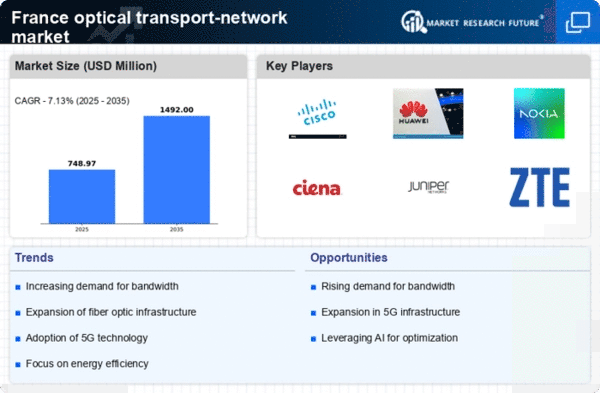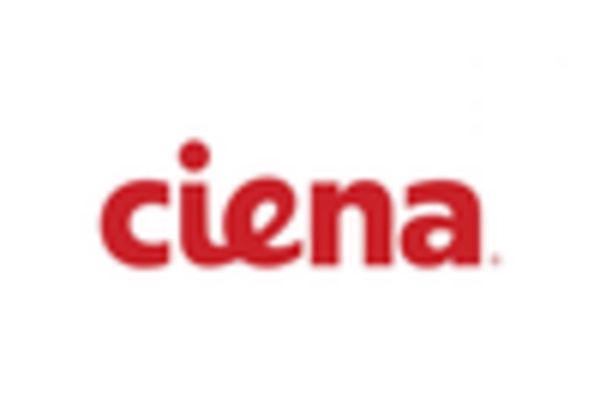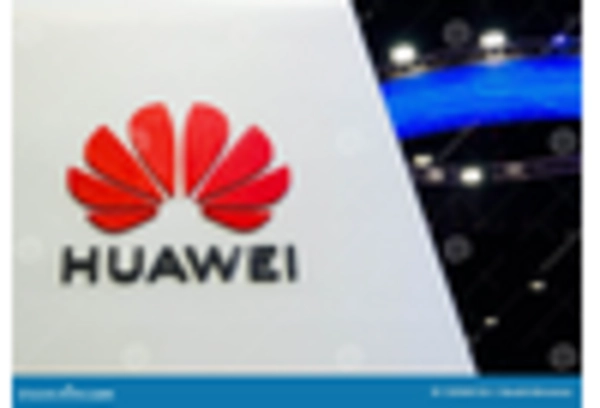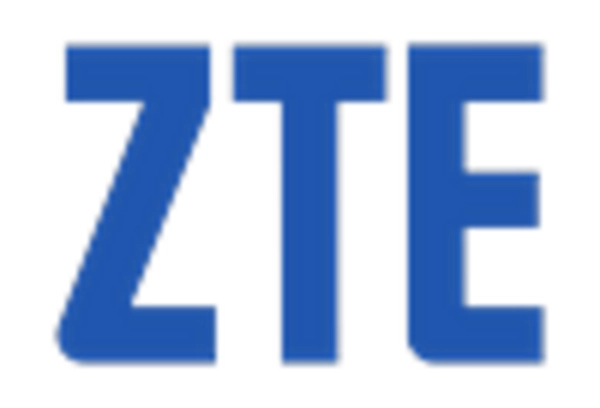Emergence of 5G Technology
The advent of 5G technology is poised to have a transformative impact on the optical transport-network market in France. As telecommunications companies prepare for the rollout of 5G networks, the demand for high-capacity backhaul solutions becomes increasingly critical. Optical transport networks are uniquely positioned to provide the necessary infrastructure to support the high data rates and low latency required by 5G applications. The optical transport-network market is expected to benefit from this transition, as investments in fiber optic networks are likely to increase significantly. Analysts predict that the market could grow by over 20% in the next few years, driven by the need for enhanced connectivity and the proliferation of 5G-enabled devices. This technological shift not only enhances user experience but also opens new avenues for innovation within the optical transport network sector.
Growing Focus on Network Security
In an era where cyber threats are increasingly prevalent, the optical transport-network market in France is witnessing a growing emphasis on network security. As organizations migrate to digital platforms, the need for secure data transmission becomes paramount. The optical transport-network market is responding to this demand by integrating advanced security features into their infrastructure. Recent studies indicate that approximately 30% of companies in France are prioritizing investments in secure optical networks to protect sensitive information. This trend is likely to drive innovation in encryption technologies and secure data transmission protocols, further enhancing the appeal of optical transport networks. As security concerns continue to rise, the market is expected to evolve, with stakeholders focusing on developing resilient and secure optical transport solutions.
Government Initiatives and Support
Government initiatives play a crucial role in shaping the optical transport-network market in France. The French government has implemented various policies aimed at promoting digital infrastructure development, which includes substantial funding for fiber optic projects. Recent reports indicate that public investments in telecommunications infrastructure have reached €1 billion, aimed at enhancing connectivity in rural and underserved areas. Such initiatives not only stimulate the optical transport-network market but also encourage private sector participation, fostering a collaborative environment for innovation. Additionally, regulatory frameworks that facilitate the deployment of optical networks contribute to a more favorable business climate. As a result, the optical transport-network market is likely to experience accelerated growth, driven by both public and private investments in advanced telecommunications infrastructure.
Rising Demand for High-Speed Connectivity
The optical transport-network market in France experiences a notable surge in demand for high-speed connectivity. As businesses and consumers increasingly rely on digital services, the need for robust and efficient data transmission becomes paramount. This trend is reflected in the growing number of fiber optic installations, which have expanded by approximately 15% in the last year alone. The optical transport-network market is thus positioned to benefit from this heightened demand, as service providers strive to enhance their infrastructure to meet consumer expectations. Furthermore, the proliferation of cloud computing and streaming services necessitates faster and more reliable connections, further driving investments in optical transport networks. Consequently, the market is likely to witness sustained growth as stakeholders prioritize the development of high-capacity networks to accommodate the evolving digital landscape.
Increased Data Traffic and Bandwidth Requirements
The optical transport-network market in France is significantly influenced by the exponential growth of data traffic and bandwidth requirements. With the rise of IoT devices and the increasing consumption of high-definition content, data traffic is projected to grow at a staggering rate of 25% annually. This surge necessitates the deployment of advanced optical transport networks capable of handling vast amounts of data efficiently. The optical transport-network market is thus compelled to innovate and expand its capabilities to accommodate these demands. Service providers are investing heavily in upgrading their networks to support higher bandwidths, which is essential for maintaining competitive advantage. As a result, the market is likely to see a shift towards more sophisticated optical technologies that can deliver the required performance and reliability.
















